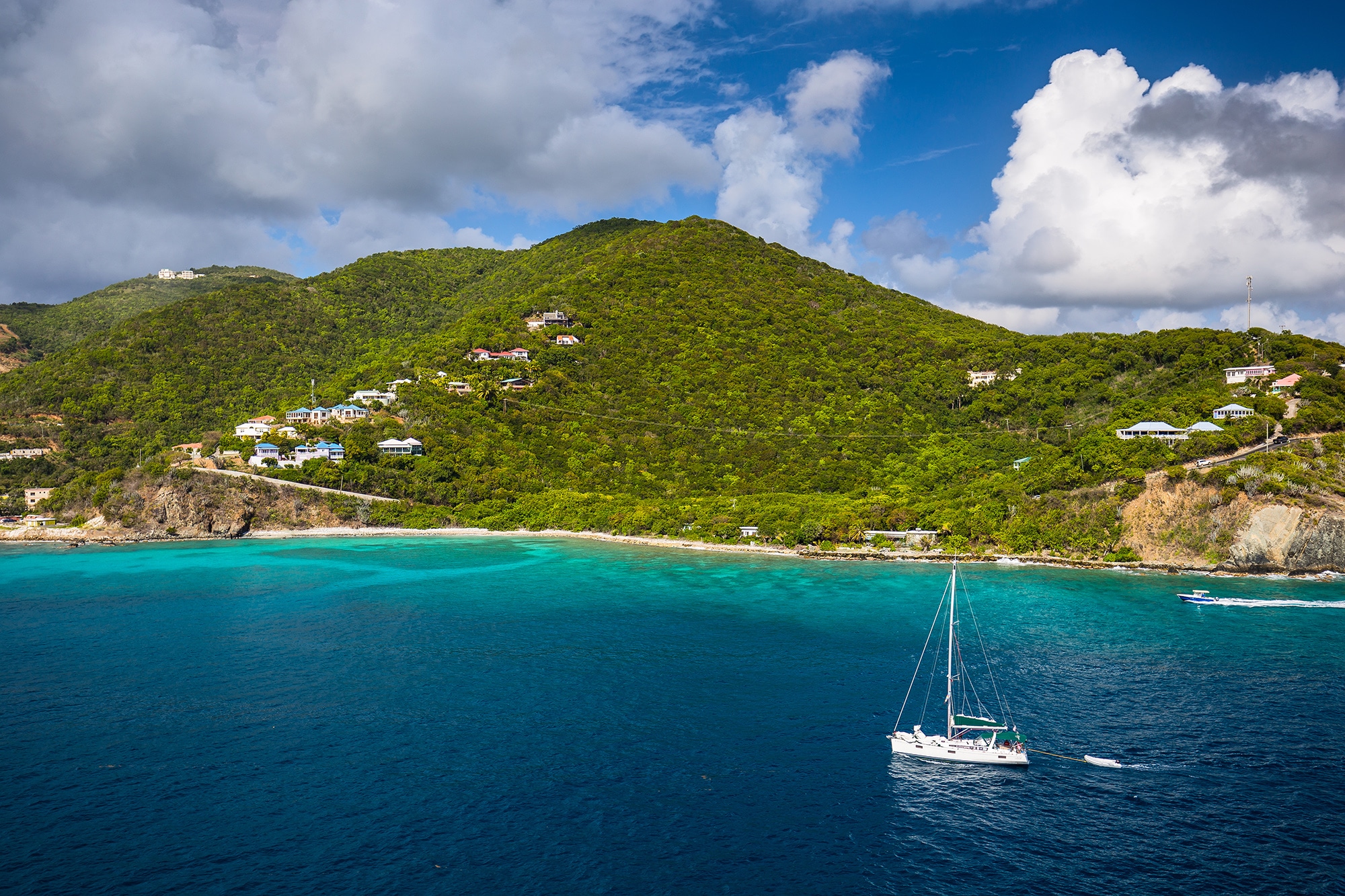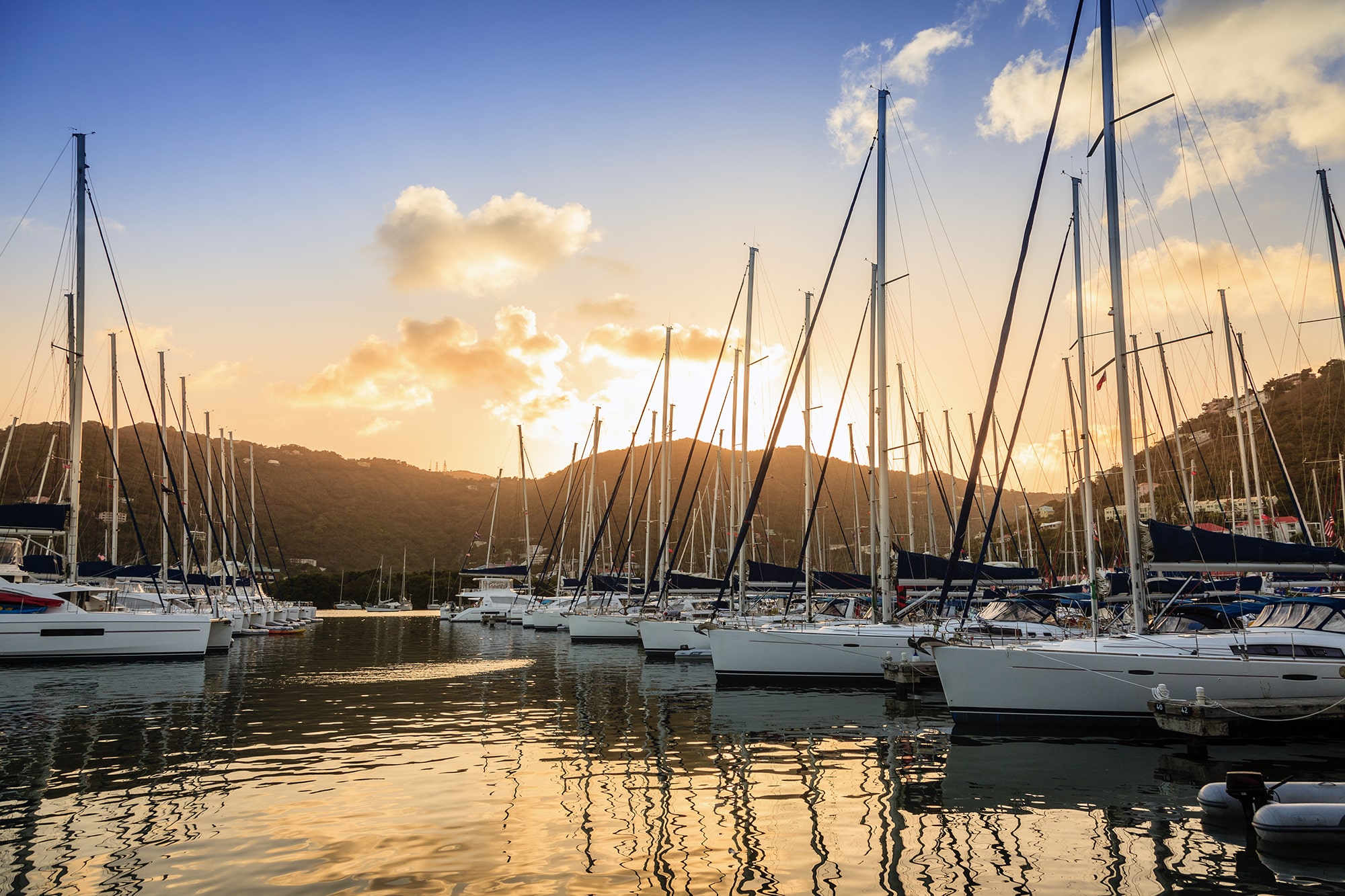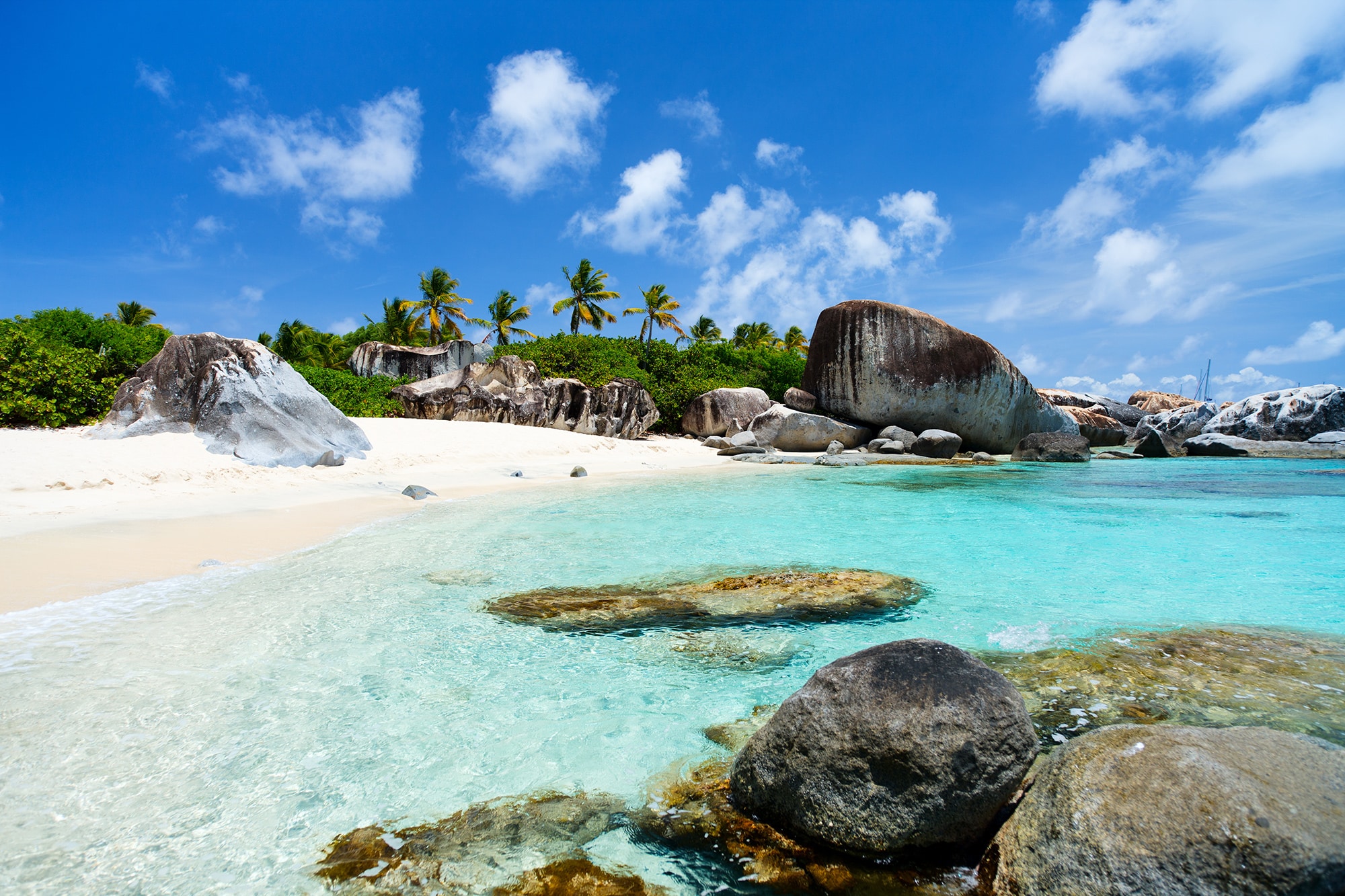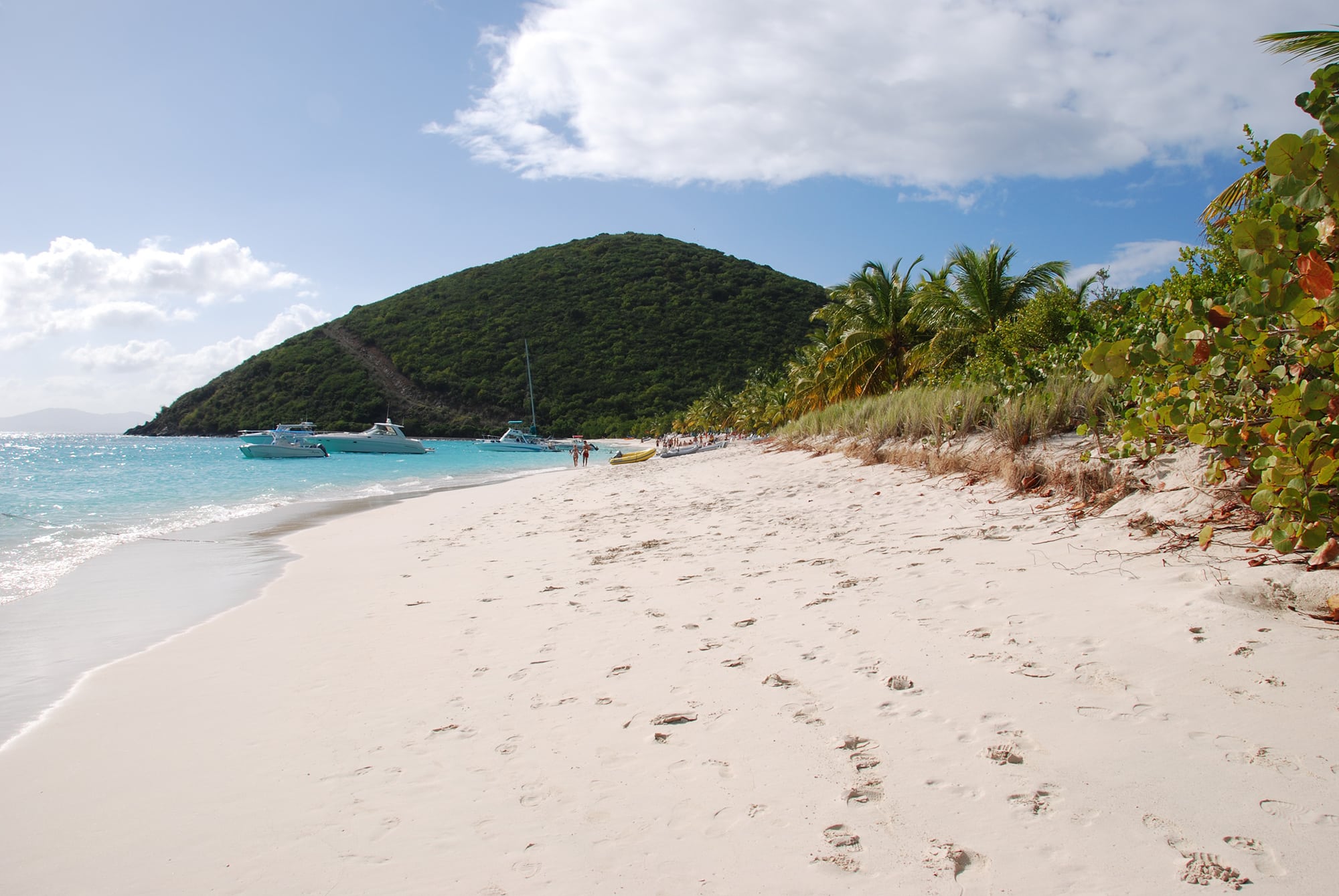Island Living: How To Move To The British Virgin Islands
An expat answers questions about day-to-day island living in the BVI.
Editor's Note: Some of the information below may be out-of-date. The British Virgin Islands were heavily impacted by Hurricane Irma. Please visit caribbeantravelupdate.com for updates.
The sailing community of the British Virgin Islands holds big appeal for U.S. citizens hoping to expatriate — but that's not all these Caribbean islands offer. The country is safe, welcoming and ideal for raising kids. You'll also find a perfect balance between a sleepy-island vibe and modern conveniences, so you'll hardly be roughing it, especially the biggest island, Tortola. Here's the scoop on life in this overseas territory, and what to expect when you're ready to permanently drop anchor.
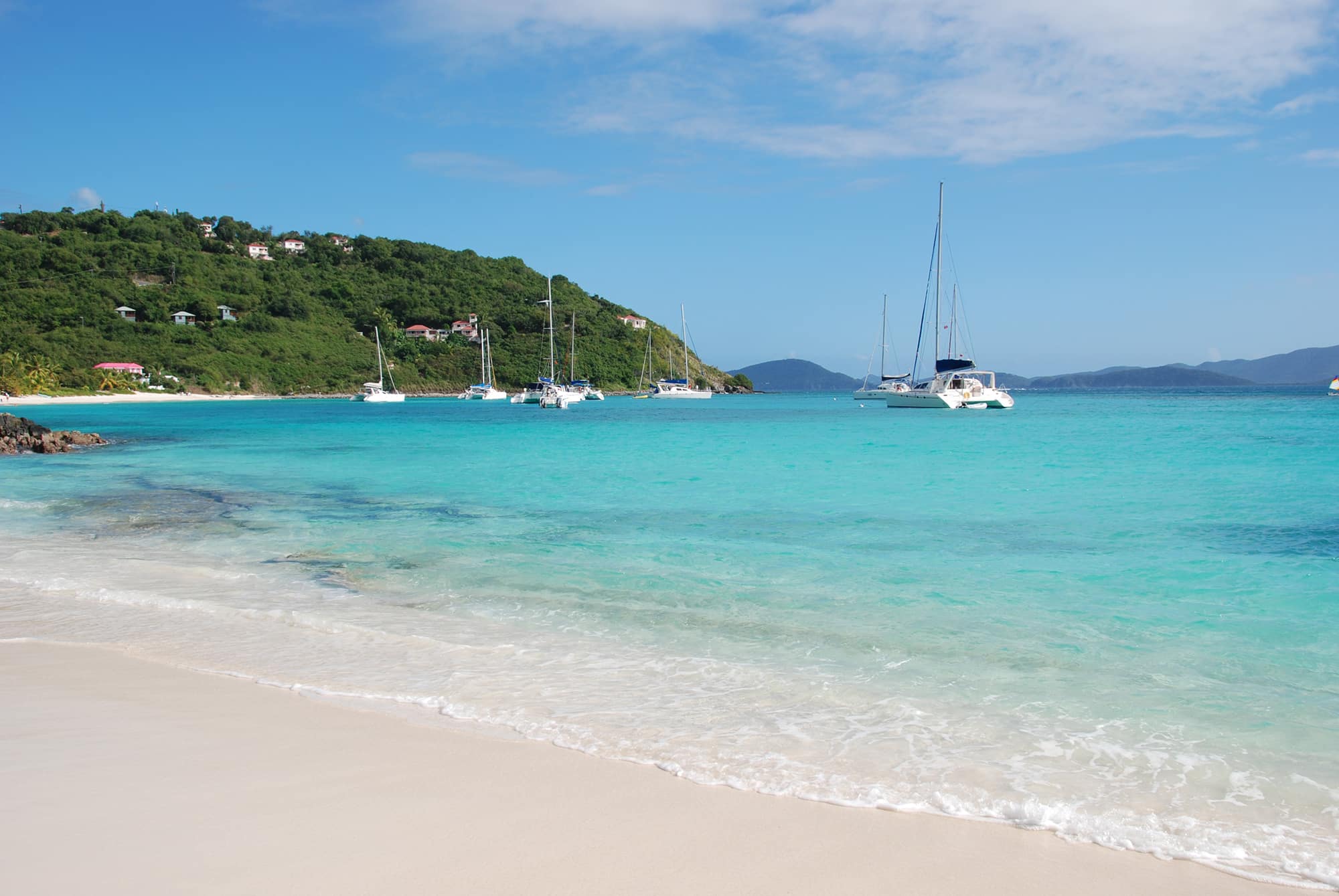
What jobs can I find?
"The tricky part of landing a job in the British Virgin Islands is that you can't just fly down and look for work — you'll need a work permit before you come," says Brittany Meyers, who, along with her husband and three children, lives on a sailboat off Tortola. From there, Meyers manages the marketing for the day-sailing operation Aristocat Charters.
She says that the best way to get a gig is to research jobs and companies that fit your skills, then email to apply. If it's a match, the next step is waiting out the three-month process. "The BVI makes it very tricky to hire an outsider — they want employers to hire locals first — but of course, for certain jobs, everyone hires expats," says Meyers.
Those jobs are most likely in the tourism sector, especially in the watersports industry, as the BVI is the bareboating capital of the world. Boat captains with a 100-ton captain's license are easy hires. "Good captains with excellent customer service and a friendly smile get scooped up," says Meyers.
Scuba instructors and servers in the restaurant industry are also valuable. Another less obvious, in-demand occupation is a lawyer: these islands are also home to a bustling financial market.
Where do I buy my groceries?
Sure, there are supermarkets, but a Tortola grocery store run doesn't much resemble one in the States. For starters, if you're making something specific, say chocolate chip cookies, don't expect to score everything on the list at one market.
"It was just my twins' birthday and I wanted to make them cookies, and the store was out of chocolate chips. I didn't have time to hit up four stores, so I had to make something else," says Meyers.
Not only will you not get everything from one market, sometimes you may get nothing at all. "There are times when the delivery boat is held up in Miami, and we have an empty grocery store for days," says Meyers.
How do I bring my pets to the island?
Bringing pets to the BVI is not a simple affair. For starters, every dog and cat must be microchipped. And, if coming from the U.S., your pet may be subjected to another round of rabies shots, even if rabies shots have been administered to the animal previously. A health certificate, as well as a tick and tapeworm treatment, is also required.
"It's an ordeal," says Meyers, "so much so that a lot of folks in the sailing community avoid coming into the BVI because their animals get denied entry." If your pets don't meet the requirements, they can be quarantined, which doesn't make sense for short-term stays. For those committing to the long haul, it's simply a necessary step.
What are the health care options?
National health care exists in the British Virgin Islands, covering residents' every ailment, from colds to cancer. Peebles Hospital on Tortola is the only such facility in the overseas territory. "I wouldn't call it state of the art, but it's very good," says Meyers.
She and her family have been well taken care of; however, they tend to frequent the urgent-care clinics when in need of antibiotics or other meds to keep the kids healthy. Thankfully, no major illness has befallen anyone in her family, but should that ever happen, Meyers says they'd travel back to the States, as she did when she gave birth to her twins.
Will online retailers deliver?
"There is no instant gratification of Amazon Prime here," says Meyers. In general, the BVI doesn't have the same system of named streets and addresses as in the States, and Amazon won't deliver. Ditto most other U.S.-based online retailers. That said, FedEx does deliver, albeit at somewhat exorbitant rates.
Granted, there are ways to still get your online-shopping fix. One is to set up an account with a company called Aeropost, which provides a Miami address, then ships the items to you from Florida. The cheaper option is to have visitors bring your online purchases with them when they fly down.
How do I move my belongings?
Meyers and her family simply loaded up their sailboat in Chicago and sailed south, but they don't have any furniture. For those relocating with more than a couple duffle bags, the marine-transport company Tropical Shipping is the best option for handling boxes, furniture and everything else you need to start your new life.
